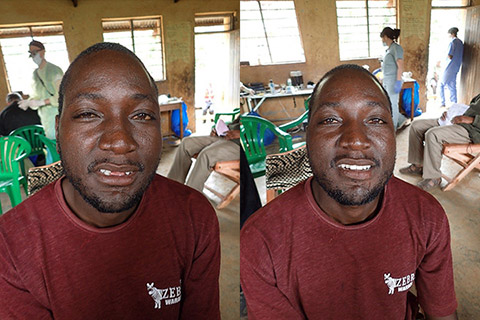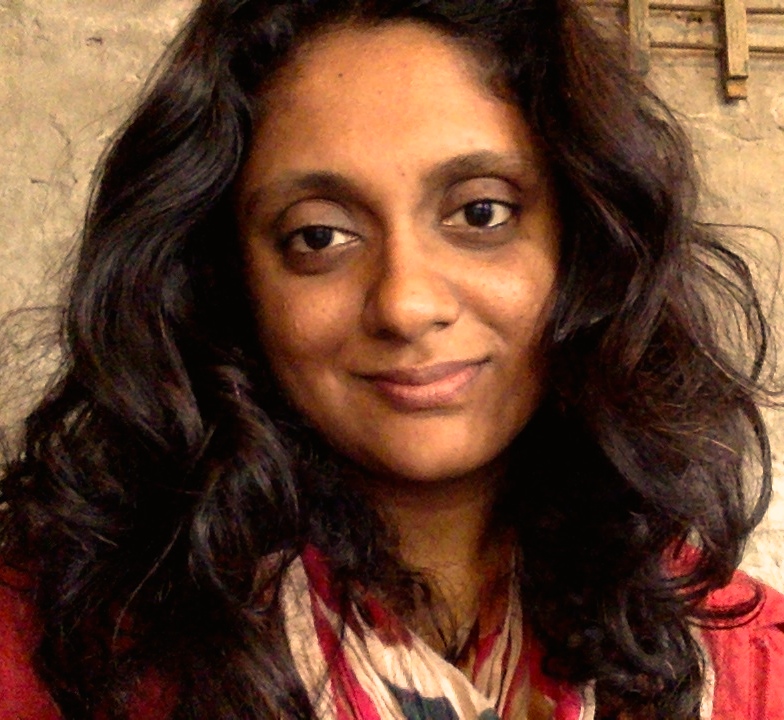When 28-year-old taxi driver Deus lost his teeth in a collision in southern Uganda, he also lost his job: his boss didn’t like his face anymore.
“If people lose their front teeth, they are shunned,” explains Izchak Barzilay (DDS 1983), an instructor at U of T and the head of prosthodontics and restorative dentistry at Mount Sinai Hospital. “It’s hard to get a job, it’s hard to get married. So we give them that opportunity back. We give them their smile back.”
For the last five years, Barzilay has accompanied a multidisciplinary team of 30 dental and medical practitioners — called Bridge to Health Medical and Dental — to Uganda, providing basic care to some of the most impoverished communities there. In the last two-and-a-half years, five students from U of T’s Faculty of Dentistry have also joined the two-week trips. “It’s an amazing learning experience of the soul for the students,” says Barzilay. “It’s not technical. It is more what is inside.”
Iranian-born master’s student Elahe Behrooz has been on two expeditions to Uganda, where she feels she made a big impact. “In Toronto, there are plenty of dentists. If I’m not available a patient can see someone else,” she says. “There, what touches me is that it’s me or no one. If I get one more extraction done I can make a big change. Even though it’s just two weeks, it’s the most impact I’ve had in my life.”
The dental team focuses on taking people out of pain, encourages them to find ways to keep their teeth and makes dentures to produce smiles. They also teach local “dental officers” how to give anesthesia, apply fluorides and make fillings and dentures. (The local officers have some dental skills but are not fully trained as dentists.)
The work teaches the U of T students gratitude and efficiency, according to Behrooz. The teams work out of makeshift clinics set up in classrooms and churches in remote villages lacking electricity and running water. They operate without many of the tools and diagnostic equipment they take for granted at home and often have only minutes to devise treatment plans that take hour-long sessions in Canada. They also learn innovative approaches to dentistry, such as how to construct dentures in a matter of hours. “Learning how to make single-day fabricated dentures opened up a new dentistry world to me,” says Behrooz.
On a given day, the dental team provides between 15 and 20 dentures, and performs up to 150 extractions. Behrooz says that one of the greatest challenges is making heart-wrenching decisions about whom to turn away at the end of every day, knowing that a tooth infection could spread to the head and neck and that a patient in danger of losing his teeth could die without a means of processing the hardy foods that are staples of the Ugandan diet.
Behrooz says the impact of the project has been profound: people can eat comfortably again, date, marry, sing, get jobs. The students have also made strong friendships with the local dental officers and continue to plan treatments with them over the Internet after returning to Toronto. In the last two years, some of the team members have also begun to work in women’s shelters in Toronto, giving back smiles at no cost. Their work in Uganda shapes their continuing practice back in Canada, and adds another dimension to their formation as dentists.
“The experience becomes a part of you,” says Behrooz. “You leave a part of your heart in Uganda.”
Recent Posts
People Worry That AI Will Replace Workers. But It Could Make Some More Productive
These scholars say artificial intelligence could help reduce income inequality
A Sentinel for Global Health
AI is promising a better – and faster – way to monitor the world for emerging medical threats
The Age of Deception
AI is generating a disinformation arms race. The window to stop it may be closing






One Response to “ Bringing Smiles to Uganda ”
Thank you for the wonderful article outlining what the faculty does and how this program impacts its students. We truly are blessed to have such students and a dean who has supported this program from the moment it was suggested. Many thanks should also be given to Bridge to Health Medical and Dental for organizing and supporting this endeavor. Members of the group are now going into Ethiopia, and future sites are also being considered.